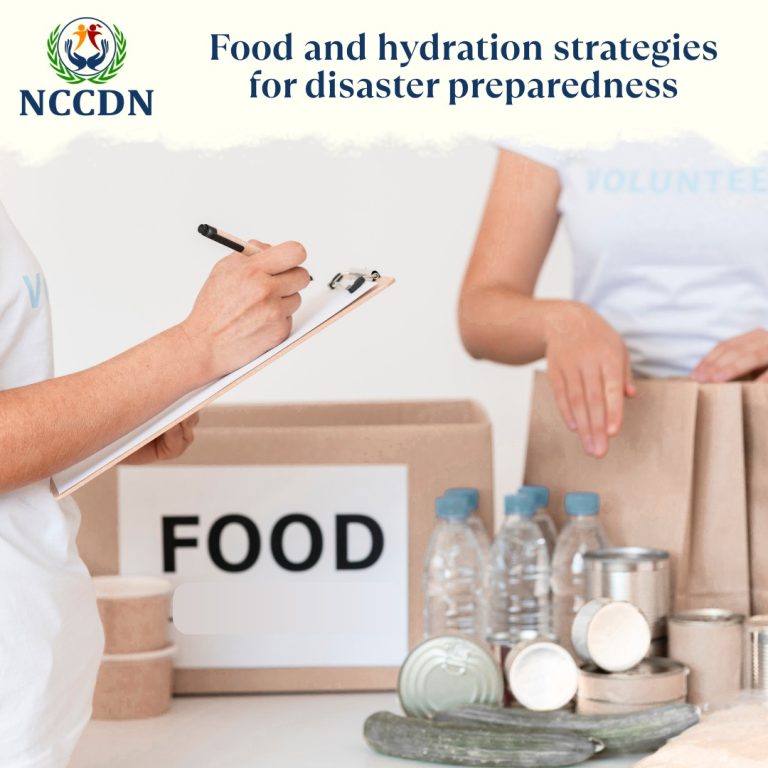- February 04, 2026
NCCDN Service: Food and hydration strategies for disaster preparedness

Disasters, both natural and man-made, can strike at any moment, throwing our everyday lives into chaos. When these events occur, access to the basic essentials like food and clean water can vanish in an instant, leaving families, especially children, in dire situations. That’s where the NCCDN service
steps in, recognizing the urgency and importance of emergency preparedness, particularly for our most vulnerable—infants and toddlers. In times of crisis, having immediate access to safe drinking water and nutritious food isn’t just a convenience; it’s a matter of survival. Understanding the unique nutritional needs of children is crucial. Infants depend on formulas or breast milk that can’t be easily replaced during emergencies, while young kids need energy-dense, shelf-stable meals to support healthy growth.
NCCDN Service: Practical Guidelines: What to Store and How to Stay Ready
When it comes to building a reliable emergency food and water supply, the key is to choose wisely and thoughtfully. Trust me, this isn’t the time to just toss random items into your cart! The New Center for Child Development and Nutrition (NCCDN) swears by high-calorie, nutrient-packed options that don’t require refrigeration or cooking—think nut butters, dried fruits, shelf-stable milk, baby food pouches, and multigrain bars. For older kids, go for canned goodies like veggies, beans, tuna, and soups. Just remember to read those labels carefully! You want to steer clear of anything loaded with sugar, sodium, or funky additives, especially for the little ones.
Hydration is super crucial, too! Aim to have at least one gallon of water per person each day. This water is not only for drinking but also for reconstituting infant formula and even a bit of hygiene. If you can swing it, throwing some purification tablets or a water filter into the mix can really boost your long-term water quality. Just make sure to store that water in BPA-free containers and rotate your supplies every six months to keep them fresh!
Let’s not forget the little extras. Parents should pack child-friendly utensils like lidded cups, bibs, formula dispensers, spoons, and feeding syringes. Creating a written feeding schedule for babies and toddlers can also work wonders during chaotic times. Familiar snacks can help soothe kids, keeping both their physical and emotional needs in balance.
Engaging the Community: Education, Equity and Emergency Readiness
At NCCDN, we’re all about more than just nutrition; our mission is to empower communities through knowledge and preparedness, especially when it comes to taking care of our kids and caregivers. We organize regular training sessions in places like schools, churches, and community centers so that families can learn how to build emergency kits and stay ready over time.
We team up with local agencies to help distribute supplies to families who are dealing with food insecurity because we know not every family can afford to stockpile food or buy emergency gear ahead of time. That’s why resource equity is at the heart of what we do! With the help of grants and donations, we ensure families can build those all-important emergency kits without any out-of-pocket costs. Every child deserves to face a disaster with the skills and confidence they need.
One of our standout initiatives, “Disaster-Ready Kids,” makes learning about preparedness fun and engaging. Think games, stories, and songs that teach school-aged children how to wisely store food and use water. Plus, we provide resources for teachers and health workers to amplify these lessons.
Education with us doesn’t stop when the kits are packed! We offer quarterly webinars, emergency updates, and newsletters to keep families informed. Community readiness creates a network of strength, and together, we can navigate any crisis that comes our way.
Conclusion
When disaster strikes, food and water become essential lifelines, especially for our kids. At NCCDN services prioritize the nutritional needs of children in our disaster preparedness plans. By providing families with the right information, supplies, and community backing, we can really cut down on preventable issues during tough times.
Storing meals and water in advance is not just smart—it’s a crucial step toward ensuring safety and dignity. We urge caregivers, educators, and community leaders to take action now. Those small steps today can make a world of difference for a child tomorrow. Whether it’s putting together emergency kits or spreading community awareness, NCCDN is here to help every step of the way.
We hope you like the article. For reading more articles and blogs, click on the link https://nccdn.org/. You can follow us on Facebook, LinkedIn, Twitter, and Instagram.
RECENT POST
- December 15, 2025
- October 10, 2025
